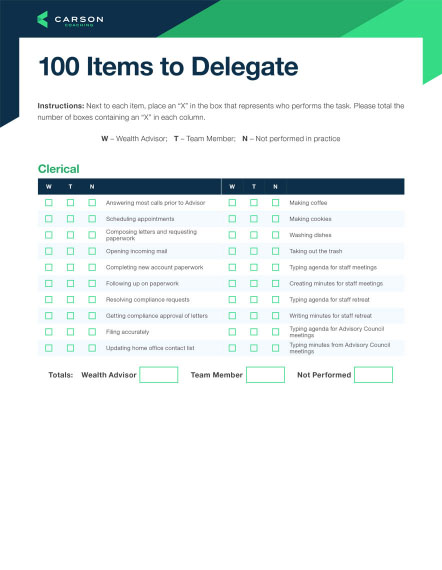This year marked our second State of Women in Wealth Management study.
While we initially wanted to do a benchmarking study to track the sentiment of women in wealth management, recruitment and barriers, this year we decided to explore more aspects of the persistent problem of the underrepresentation of women in our industry.
We know that tracking progress is important, but we wanted to understand the problem even better in hopes of identifying additional avenues for improvement and growth.
But what we found is that since last year, little has changed. Women are still underrepresented in the industry, and most people still think it’s a problem that we’re not doing much about.
While most of our survey questions were different from last year’s, we did ask this one again: “The underrepresentation of female advisors is a problem that should be taken seriously by industry organizations.” Last year, 91% of women and 91% of men agreed or strongly agreed with that statement. This year, though, 68% of men and 92% of women agreed or strongly agreed it was a problem.
The lack of progress isn’t just since last year. We haven’t made much progress in increasing gender diversity since CFP Board first started tracking data about a decade ago. Women still make up around the same percentage of CFP professionals – around 23.7% – which is only up 0.2% since last year’s report.
In an ideal world, women in financial advisory roles would reflect their population in the broader United States, which is at 50.4%, according to the U.S. Census.
In the 2023 Women in Wealth Management study, we studied the sentiment of female (and some male) financial services professionals across several areas, including why they choose a career in this industry, whether they were in another industry prior, how satisfied they are with their current positions, their experiences with mentorship, whether company culture is important to them and what they consider the elements of a good culture.
The objective of this year’s study was to uncover insights that hinder women who have chosen to enter the industry and identify better ways to empower and elevate them.
Our 2023 findings were based on a survey of 276 financial advice professionals from different channels. About 84% of the respondents were female, 14% were male and 1% preferred not to identify.
The average age of our respondents was 48, and respondents had been in the industry an average of 19 years.
Our key findings included:
No. 1: Women Are Critically Important to Wealth Management
This is the case because they are equipped to address the needs of clients and bring a variety of skills to the role, and because current trends indicate a greater need for more women in the industry.
Dr. Julie Ragatz, one of the study’s authors, indicated that the superior empathy and relationship-building skills generally ascribed to women are usually borne out of stereotypes and conditioning. Despite that, many of our survey respondents indicated that those very same skills we have been conditioned to perfect as women position us for success in this industry.
No. 2: Sponsors Are Integral to Success
Sponsors have been integral to helping women rise in the ranks, but sponsorship is still oftentimes confused with mentorship and women in financial services are often under-sponsored, writes Samantha Ross Saperstein, head of JPMorgan’s Women on the Move, in Time Magazine.
The difference between the two, according to Gallup, is that mentors give mentees tools to find opportunities for themselves and sponsors give the people they sponsor (oftentimes called proteges, sponsees or sponsorees) opportunities. We explore this topic in depth in another blog post.
No. 3: Women Still Struggle with the Second Shift
Women across sectors – and in financial services – still struggle with the “second shift” of taking on most domestic and caregiving responsibilities. Our inaugural report found that this second shift of caregiving and domestic duties largely fell on women. This hasn’t changed.
“We are still the primary caregivers in our homes and we are the ones that are expected to make the sacrifices on a daily or lifecycle basis,” one respondent indicated.
Pew Research Center reported that even though women contribute just as much financially – and in some cases more – than their male partners, they are still providing a disproportionate amount of time to home duties and caregiving. The only time this is different is in marriages where the female is the primary breadwinner, and in that case, they provide roughly equal amount of time on home duties and caregiving. Plus, around 75% of caregivers of aging parents are female, according to the Family Caregiver Alliance.
No. 4: The Queen Bees, the Bros and the Old Boys Present Challenges
The “Queen Bee Phenomenon,” “old boys’ club” and “bro culture” all present further threats to the inclusion and retention of women in the industry.
Our analysis found women oftentimes “kick the ladder out” after they’ve risen, effectively undermining up-and-coming leaders instead of helping them grow. Research from the British Journal of Social Psychology dubbed this the “Queen Bee Phenomenon.”
“Some women think that there’s only one seat at the table,” one respondent said. “And so instead of working collaboratively, they’re very competitive.”
Plus, the locker room talk and not having their voices heard – oftentimes symptoms of what our respondents called “bro culture” and the “old boys’ club” – make it difficult to get recognition and influence in the industry.
No. 5: Gender Biases and Stereotypes Persist
Gender biases and stereotypes still linger in the financial services world. Many clients still prefer male advisors, likely because the stereotypical image of a financial advisor has historically been male. This bias is reinforced by the all-too-common scenario where women in financial offices are pigeonholed into administrative roles instead of being recognized as potential advisors.
The hurdles faced by female advisors are substantial, as they often feel the need to prove themselves in a predominantly male-dominated industry. Overcoming these biases and constantly having to justify their worth to clients and colleagues can be an uphill battle. Female advisors regularly find themselves fielding questions and scrutiny that their male counterparts never encounter.
One female advisor said: “I feel like we have to prove ourselves more. I get questions I doubt they’d ever ask men. … It’s like they’re sizing me up.”
No. 6: The Ever-Present Problem of Unchecked Bad Behavior
There was a glimmer of hope that sexual harassment and assault were starting to wane in the industry. In 2018, Sonya Dreizler released her “Do Better” Series, where she featured the horrifying tales of the things women in this industry have endured. And people seemed to start behaving a bit. But now that we’re back to business as usual post-pandemic, it seems this behavior is back.
Some of our respondents indicated it’s common to not feel safe at work or at work events and to experience sexual harassment and not report it. One respondent even said that it’s the reason she left her job.
“I was sexually assaulted at the credit union I worked at, which is why I left,” one survey respondent said. “There’s this whole culture of moving away from things instead of reporting them. … I think it’s very prevalent in the industry, but nobody wants to talk about it.”
No. 7: Respondents Offer Career Advice to Their Younger Selves
Cerulli reports that new advisors have a failure rate of more than 72%. But our respondents offer advice to both their younger selves and newer advisors to not be part of that exodus.
Career advice for early female advisors includes learning from people who inspire them, getting their licensing done, networking and finding the right business model fit. That advice includes:
- Learn from people who inspire you.
- Focus on learning all the basics, getting your licensing done and absorbing all the technical knowledge and expertise you can in your early years. This can help instill confidence.
- Network, connect and build your community in the industry.
- Learn all the different ways to work in this business so you can find the right fit.
- Don’t settle for a role that doesn’t give you what you need.
That last point is key, one respondent said.
“What I find with a lot of women is that they find a bad cultural fit of a firm and they assume that they’re a bad cultural fit for the industry,” another respondent said. But that’s not the case. You can always shift and find something that works.


